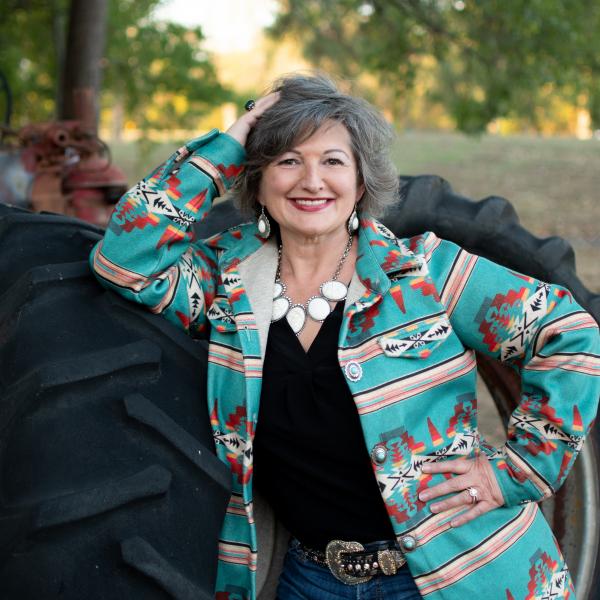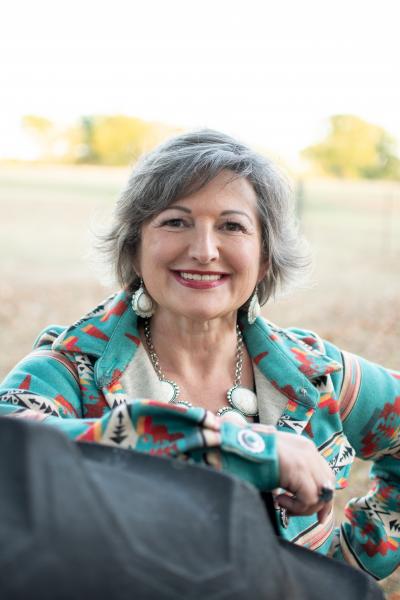Please update your browser.
Our site no longer supports this browser. Using another one will help provide a better experience.
- Home
- News Releases
- Stories
-
back
Stories
- Lumen Lede
- Lumen Blog
- In the News
- Press Tools
-
back
Press Tools
- Brand Assets
- Image Gallery
- Video Library
- Corporate Fact Sheet
- Our Company
Lumen Lede
Related News
Lumen Lede

October 13, 2022
Lumen Partnering with Fairygodboss to Create Active Allies in the Workplace
Lumen Lede

October 13, 2022
Lumen Partnering with Fairygodboss to Create Active Allies in the Workplace
Tzeitel Looper roams the 150 acres that make up Hogshooter Homestead with a pride rooted in ancestral sacrifice and strength. Her great-great-grandmother and great-grandmother marched the Trail of Tears nearly 200 years ago to the dry patch of land in Ramona, Oklahoma. Tzeitel is the fourth-generation Cherokee owner of this sacred land.
“My great-grandmother, Nola, and her mother, Cherokee Bell, experienced the worst of worst circumstances after being forced from their North Carolina home,” she said. “If you know anything about the Trail of Tears, more than 15,000 people – mainly Cherokees – died of starvation and sickness on the trek. If these two women survived, it speaks volumes of their strength and fortitude.”
Their resolve is what drives Tzeitel to help make meaningful changes for all Native American tribes and other marginalized populations across the U.S. She organizes drives to combat food insecurities, oversees Heartland Homestead Families, and serves as chair of the Voice of Many Feathers employee resource group (ERG) at Lumen – all while working full-time as the company’s Director of Transformation.
Honoring Culture Amid Life Struggles
Tzeitel leads one of 11 ERGs at Lumen that support diversity, inclusion, and belonging initiatives for the company’s ~27,000-plus employees. Voice of Many Feathers (VOMF) recently celebrated National Native American & Indigenous Heritage Month (November). For Tzeitel, the month is one point in time where tribal culture and traditions are center stage.
“Native Americans have unique identities and contributions. We have diverse cultures and traditions,” she said. “Our diversity makes us unique in our own tribes, but the historical trials and tribulations are the same. And many of those trials continue today.”
A River of Change
As a young girl, Tzeitel spent summers with her grandfather on reservations throughout the country. In many ways, the living conditions haven’t changed in the years since. “Native Americans and Indigenous Peoples live on land within the United States and, honestly, they’re Third World countries,” she said.
Fifty-eight out of every 1,000 Native American households lack plumbing, compared with 3 out of every 1,000 white households, according to a DigDeep and U.S. Water Alliance report. A U.S. Department of Energy analysis estimated 14.2% of Native American families on reservations have no access to electricity, compared to 1.4% of all U.S. households.
“We didn’t have running water in our area until 1964,” Tzeitel said. “There are still residents here who live without running water. Why? It’s cost-prohibitive to build infrastructure to get lines to remote locations.”
That’s changing under Tzeitel’s watch. She currently sits on the Washington County Rural Water District #2 board and pushed an initiative to replace outdated water meters with telemetry models that allow for drive-by readings instead of manual checks. The county recently received approval for a $250,000 grant to improve water system infrastructure for the Cherokee Nation.
Internet service is another issue. There are no telecom providers near Tzeitel’s farm, so she relies on a wireless connection. “If it rains or the wind blows the wrong way, I could be without service. There’s no fiber optic lines in the ground here, but the Cherokee Nation recently announced it will invest millions of dollars to expand the fiber network.”
One World, One Voice
It would be easy for Tzeitel to compartmentalize the daily struggles Native Americans face but she instead takes a pragmatic look at societal woes. She understands food insecurities exist outside reservation borders. Too many others lack proper health care, employment opportunities, and access to basic needs.
“My passion is figuring out how to help those who can’t help themselves,” she said. “It’s not just about Native Americans and their struggles. All races, ethnicities, and cultures face the same issues in some way. Native Americans have cross-sectionality with Blacks, Latinx, and other beautiful people of color.
“We celebrate our diversity, our inclusion, and our belonging, making us – as our ERG describes – a Voice of Many Feathers. We are diverse, but we are unified in that diversity.”
Learn more about Lumen’s employee resource groups and their commitment to Diversity, Inclusion and Belonging here.
Not all products and services are available in all regions and countries; please contact a representative near you for details.
©
2024 Lumen Technologies. All Rights Reserved. Lumen is a registered
trademark in the United States, EU and certain other countries.









